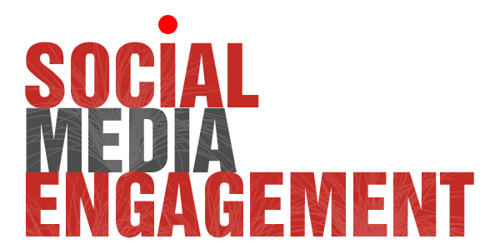I got drunk with this kid a few summers ago who worked in marketing. At the time, I didn’t officially work in marketing — I worked in “editorial” for a small part of PBS, basically — and this kid, while drunk, was saying some entertaining stuff. For example, the overall boss of his company (i.e. the CEO) used to post pictures on Facebook and, periodically (this happens to most of us at least a few times), something would get 200 likes: a photo of him and his wife in a romantic location, or whatever. Oftentimes, the business page would share this photo and it too would get 100, 200 likes. The CEO would then say, at a meeting, “… we’re really driving social engagement on some of our platforms …”
The drunk kid, to me: “We don’t fucking get paid in likes and shares…” (muttering)
Let’s start with the core basic tenet of almost any job you ever had: you want to impress your boss, and your boss (because he/she has bigger responsibilities than you) probably doesn’t have time to totally understand everything you do (that’s a big problem in its own right, but that’s for another post).
Universally, bigger numbers impress people, even if the bigger numbers don’t really mean anything more than just being a number.
I ran into these same problems at the PBS job — for example, back then I had a boss who loved big numbers (as most bosses do), but the traffic on our pages wasn’t great, and the traffic on posts he wrote wasn’t great. This was a big deal to him, because (a) he was an egotist and (b) he was writing some books now and again, so he wanted to think he had an audience. One of his only really solid metrics was Time Spent On Page for his posts. Sometimes it would be 10-11 minutes. So I used to over-emphasize that when I reported, and he loved it.
Was that bullshit? Sure. But this same guy threatened to fire me about 3-4 times, so I had to save my own ass too. That’s human nature.
Social engagement — broadly speaking, likes/shares — tends to be bigger numbers, and so oftentimes, people like to report those up the chain.
The problem? Social engagement doesn’t really mean anything. Posts with the highest levels of engagement still get 99 percent of their traffic from paid, not organic, reach.
This all speaks to some of the problems with social media — the ROI is hard to prove, people chase “viral” as opposed to “retained customers,” it’s hard to make revenue, and no one completely understands what the purpose of the concept is (traffic driver or engagement).
Here’s what Forrester suggests replacing social engagement with:
If you’re a social marketer and you want to impress your boss — and get more funding for your efforts — then it’s time to stop measuring social engagement. Instead, bring your CMO reports from sales tracking vendors, platforms that collect data into customer databases, and survey tools. You’ll be speaking their language, and your budget will benefit.
This is actually a huge topic that applies outside of the social media space: different divisions of a company speak different languages. (That’s part of what “a silo” is.) If you sit down and talk about the aspects that are important to you, the other side might not have any idea why it’s relevant.
So if you sit down in a meeting and say, “Well, we want to bolster social engagement,” that means nothing to a CFO, contextually.
Now, you might be able to get the CFO’s attention short-term by saying “Well, a bunch of our posts had 200 likes.” Chances are the CFO has a personal Facebook, or his kids do, and he/she understands what that means.
But long-term, no. You’re never going to get more headcount and all that stuff by focusing simply on social engagement. A “like” is a passive action in most social media. Honestly, so’s a retweet. You can argue that “Oh, it expands reach!” Sure, it does (most of the time).
Here’s the thing, though:
The goal of marketing, simply, is to drive awareness and sales.
Social media can help with awareness, sure — and that’s great.
But the only things you should be measuring and reporting are the things that tie back to, and drive, sales.
Social engagement isn’t that. You can put up a picture of a blender if you’re a retailer, and it might get 500 likes. That doesn’t mean 500 people are buying that blender that day, or anytime in the next two weeks. I like photos all the time. Honestly, I hate some of the people whose photos I like. I’d never even acknowledge them if I passed them on the street. But it’s easy to like a photo, you know?
Bottom lines? The funnel changed, and no one can really prove the value of social media. They know it’s important — they’re just not sure how/why it is (which are important questions before launching into anything).
But, for the love of God and all that is holy, don’t worry so much in 2015 about likes, shares, and fans.
Remember: You don’t fucking get paid in likes.


What about Comments?
I personally don’t think comments matter that much, but I know a lot of people do.